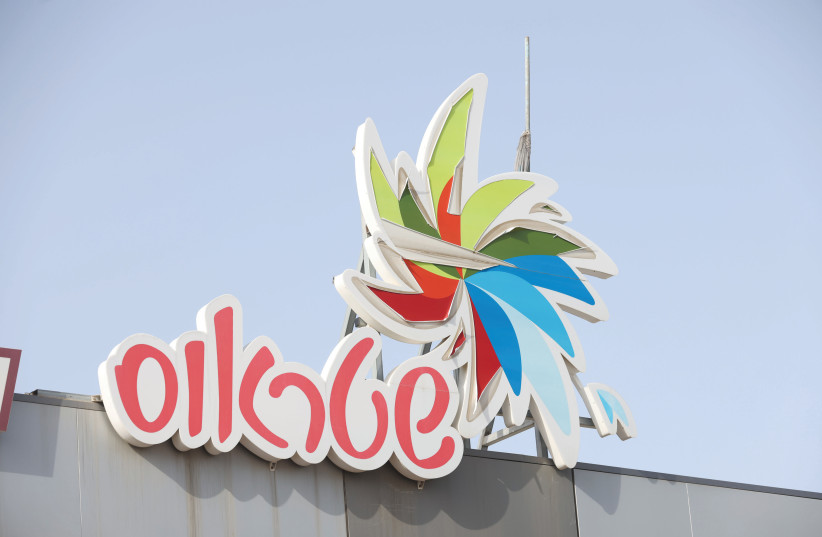The rise in the cost of living in Israel is unbearable. Even basic groceries have become too expensive and it does not seem that there is a real solution to the ongoing problem. Politicians have convinced the Israeli population that the source of the problem is the action of the current government or the previous one, depending on their political situation. However, what politicians have failed to mention to the public is that the problem is not a right-wing attitude versus a left-wing one.
The real issue in the Israeli market is that it is not a capitalist system but an oligopoly. A combination of Israel’s communist heritage and incomplete economic liberalization has led to the emergence of an oligopolistic market structure in which a small number of firms dominate vital industries.
The actions of Israeli governments over the past three decades, such as a lack of regulation and protection of dominant firms from the competition which has ultimately crippled the country’s growth and development potential. While prices are rising all over the world, politicians constantly remind the public of the worldwide rise.
Israel's oligopoly has kept prices high
Nevertheless, prices in Israel before COVID and the Ukraine war were already high. The worldwide economic crisis has quickened the pace. The current crisis in Israel is the result of long-standing, unresolved economic issues that are now exacerbated by inflation’s echo chamber effect.
Companies like Osem, Strauss and Tnuva, among others, have ensured long ago that their prospective industries remain close, ensuring that the competition will remain limited, up to non-existent. Thus, a lack of competition is preventing companies from lowering prices, and ensuring that the Israeli population will have very limited options. Enabling those very few companies to exert substantial control over consumer needs.

Customers may not hold these businesses accountable for their actions because they have limited alternatives. Last year’s Strauss poisoning affair is the perfect example of the weakness of Israeli consumers, as it demonstrates the absence of proper oversight and regulation, as well as the failure to hold companies accountable for their actions, resulting in the sale of unsafe products.
Israeli politicians have used the economic crisis as a political tool. Politicians have traditionally leveraged the economic crisis to blame right-wing or left-wing economic attitudes to the problem. However, what politicians have failed to mention to the public, is that the monopolistic system is endorsed by both right-wing and left-wing parties. Politicians have always ensured the protection of these large Israeli corporations, and the wealth of the owners of these companies, the primary beneficiaries of this oligopoly system.
It is essential to notice the Israeli regulatory administration’s practice of taxing each product, rather than focusing on monopolistic or oligopolistic structures, allows these systems to survive and proliferate in the market, thereby creating a self-reinforcing cycle of power concentration in the hands of a few.
THIS ATTITUDE is clear when one examines the remarks of MK Michael Biton, last week, to supermarket owner Rami Levi. The Knesset Economics Committee held a meeting regarding the rise in food prices and its effect on the cost of living. During the meeting, Biton called Rami Levi and other supermarket chain owners “tycoons and pigs,” blaming the Israeli supermarkets and companies for the ongoing crisis.
Levi has traditionally been one of the only ones to call for a completely free market in Israel. Thus, Biton’s remarks are uncalled for and disgraceful. It is the role of representatives to ensure a fair and free market that will prevent large tycoons from taking advantage of the Israeli population. Biton, along with countless others, has neglected the calls of Levi for a free market, opting for small and insignificant tactics that continue to protect the owners of large companies.
Instead of placing the blame on Levi, Biton is advised to take political actions and legislation that has the potential to make an actual change. Currently, extremely high tax regulations and tariffs have prevented large companies from across the world from entering the Israeli market.
The addition of new companies to the Israeli market will force Israeli companies to lower prices to match those of foreign companies. Once the Israeli public will have a large selection of products to choose from, it will allow the public to make its own choices among quality products, protecting and limiting their expenses.
The Israeli public is, unfortunately, mostly ignorant of these implications. The economic discussion has been embedded within the right-wing vs left-wing argument, making the public believe that their political choice between the two political camps will also influence the economic situation and the public has failed to understand this political bluff.
Moreover, political parties that focus primarily on economic issues gain very little support and most do not even cross the threshold in elections.
Thus, the population needs to wake up from its slumber and realize the real problem. It does not matter which side of the political spectrum is in power. Regardless of political ideology, it is time for Israel to open its market to the world and allow foreign companies to enter the market.
Continued ignorance of the problem will ensure that we will remain in this economic crisis and that the changes that we might see to the prices of our groceries if reduced will be limited and unimpactful.
Ibrahim Abu Ahmad is the director of alumni relations and the Alternative Tourism Project at the Regional Organization for Peace and Economic Security (ROPES). He is a political analyst and a speaker focusing on Middle Eastern affairs, most notably the Israeli-Palestinian conflict.
Hillel Portugais-de Almeida is a graduate of political science from Université Paris 1 Panthéon-Sorbonne and IDC Herzliya, a cyberwarfare operations manager, and expert on Middle Eastern and European political issues.
